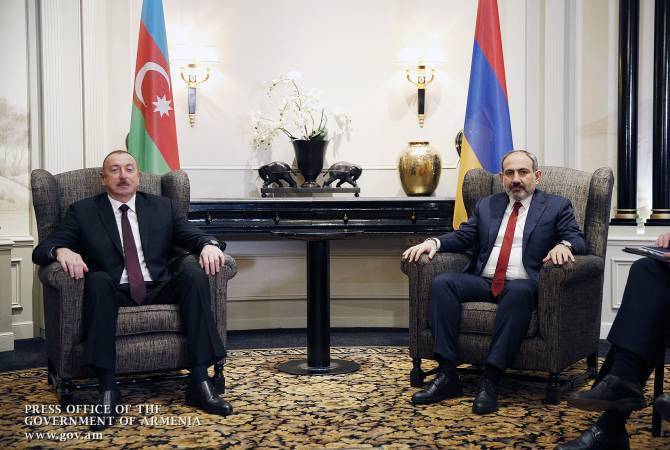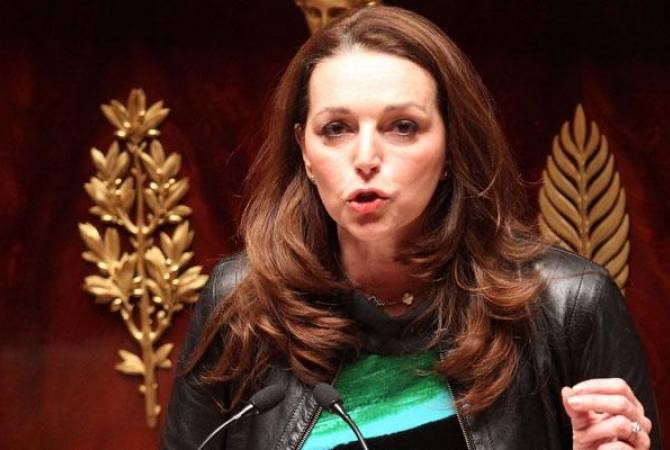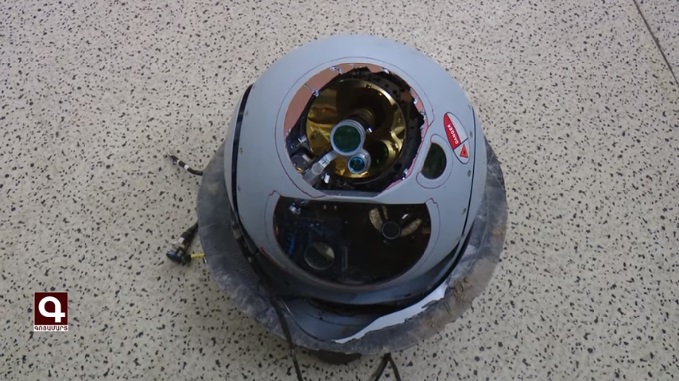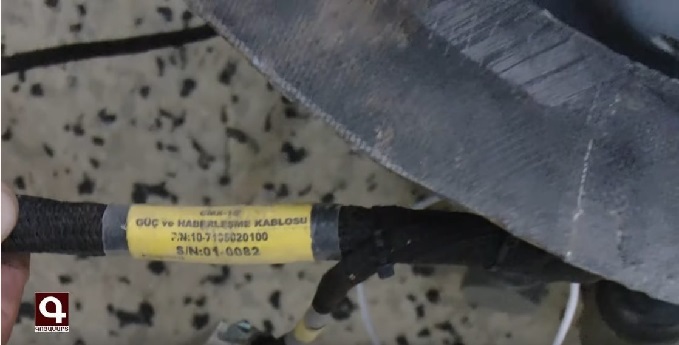Where is your brother? How Christians are failing the Armenian people
Where is your brother? How Christians are failing the Armenian people
There is a country in the Middle East whose people have been in a covenant relationship with the God of the Bible for millennia. They have faced many persecutions in their long history, but none so terrible as in the 20th century, when a powerful country tried to wipe out all of them – the entire race – during a world war. Despite this horror, they clung to survival, setting up their own independent state on a tiny strip of land, surrounded by much larger, hostile countries that have vowed to destroy them.
What country am I talking about?
If it weren’t for the headline of this article, it would be entirely natural for an American Christian to assume I was talking about Israel. The Jewish state is the subject of great passion and devotion among American Christians, evangelicals in particular. And even beyond its evangelical supporters, Israel garners an enormous amount of attention. Every border clash with its Arab enemies, every turn in the diplomatic game, is deemed worthy of intense media coverage.
But the country I described is actually Armenia. Armenia was the first country in the world to convert to Christianity and is the home of some of the oldest Christian sites and communities in the world. The Armenians were nearly destroyed in a genocide carried out by the Turkish state from 1915-1923. Over a million were killed, by most estimates, and most of the survivors scattered across the world. The Republic of Armenia finally gained independence from the Soviet Union in 1991. And since September 27, it has been under attack by its larger neighbor Azerbaijan, supported by its even larger ally, Turkey. Turkey is now bringing in thousands of jihadists from Syria to fight against the Christian Armenians.
Had you even heard about that?
If not, don’t feel bad – you’re far from alone. Christian media in the U.S. has been largely silent on the subject.
Read The Christian Post's Oct. 2 coverage: Turkey sends ISIS commander, Syrian rebels to aid Azerbaijan in Armenia conflict
Azerbaijan accused of shelling Armenian cathedral, denies targeting religious sites
100,000 march in Los Angeles over Azerbaijan conflict with ArmeniansChristianity Today featured its first piece on the conflict on October 6. The only American Christian voice cited in the piece, Rev. Johnnie Moore, coolly commented, “Christians shouldn’t instinctually support Armenia just because it is a majority-Christian country.”
An Armenian friend, who belongs to an evangelical church in the capital city of Yerevan busily engaged with helping displaced children, wrote to me in sad astonishment after reading the Christianity Today piece. “I can't believe what I just read,” she said. “I have never ever felt this alone in my entire life as an Armenian AND as a Christian. Reading these statements from Christians of status and influence is just unbelievable.”
There is, of course, wisdom in not taking sides in a war just because one side is Christian. But there is much more to this story.
In the chaos that followed World War I, both Armenia and Azerbaijan were conquered by the Soviet Union. The Soviet conquest destroyed Armenia’s young republic, but also put an end to a Turkish invasion of the Caucasus region. The Turkish Ottoman Empire had wiped out nearly all of its own Armenians during World War I, and the forces of the Republic of Turkey that replaced it seemed intent on finishing the job in Armenia itself, with the help of their allies in Azerbaijan. The Russians pushed the Turks out and integrated both Armenia and Azerbaijan into the Soviet Union.
When Joseph Stalin, then Soviet Minister of nationalities, drew the new borders of the region, he placed a historic Armenian region called “Nagorno-Karabakh” inside the borders of Azerbaijan, despite its people’s expressed wishes to be part of Armenia. This is an old and well-known trick – by pitting subject peoples against each other, the Soviets made it easier for them to stay in control.
Over the 70 years when Nagorno-Karabakh was part of Azerbaijan, the Azerbaijani elite discriminated heavily against the Armenian population. When the Soviet Union began to break up in the late 1980s, a protest movement emerged in Nagorno-Karabakh. Its people wanted to be part of Armenia again. The Azerbaijani government responded by unleashing a campaign of terror on Armenians across the country. Bloody massacres purged Azerbaijan’s cities of Armenians, and Azerbaijani forces moved to destroy Nagorno-Karabakh’s Armenians. Armenia went to war to defend them, and six years of fighting ensued, which left 30,000 dead.
In the early 1990s, Christian human rights activists like Dr. John Eibner and Baroness Caroline Cox of Christian Solidarity International made headlines by flying planes full of humanitarian aid into Nagorno-Karabakh. The stories they brought back were grim:
The Armenians [under bombardment] had to spend almost the whole time sheltering in basements and cellars in appalling conditions. With no light, heat or energy, they huddled in the dark, in sub-zero temperatures, with no running water, no sanitation, no proper ventilation. As the electricity had been cut off by the Azeri-Turks, the only water for the 82,000 inhabitants of Stepanakert was from 8 spring wells. It took up to 5 hours to walk to and from the wells and to wait with hundreds of others, in the bitter cold, under constant shelling, just to fill 2 buckets. Perhaps worst of all was the lack of adequate medical supplies. In the bombed hospital, we saw patients with severe injuries, such as extensive burns, bilateral amputations, glass in eyes and bullets in spines. The medical staff had no proper anesthetics or pain-killing drugs; often vodka was all they could give to try to relieve pain.
At the end of the war, Nagorno-Karabakh became an autonomous republic, protected by Armenia. Armenia conquered some additional territories in Azerbaijan to bolster their position, turning hundreds of thousands of Azerbaijanis into refugees. A fragile ceasefire was put in place, but no peace treaty was ever signed. Occasional clashes continued along the border. The president who had ruled Azerbaijan under the Soviets created a brutal familial dictatorship. Armenia set up an imperfect democracy.
On September 27, 2020, Azerbaijan broke the ceasefire, launching a surprise attack on Nagorno Karabakh.
Over the past decade, Azerbaijan has raked in huge oil profits, which it has poured into its military, preparing for this fight. Its leaders have apparently decided that now, with the U.S. distracted by its election and the world distracted by coronavirus, is the opportune time to take back Nagorno-Karabakh.
Azerbaijan’s longtime ally, Turkey, is helping. For years now, Turkey has been seeking to spread its power throughout the Middle East. Today, it is involved in wars in Syria, Iraq, and Libya, and is rattling its saber against Greece. It is now adding Armenia to the list. Turkey is even linking the conflicts together, taking jihadists who fought with Turkish support in Syria to fight against Christians in Armenia.
As for the Armenians of Nagorno-Karabakh, the grandchildren of genocide survivors and themselves the survivors of ethnic cleansing, they see their oldest enemies bearing down on them with ferocity. Out-manned, out-gunned, they are certain that the specter that has haunted them all their lives has at last arrived: genocide, again.
To be sure, the Armenians are our brothers and sisters in Christ. They are under attack by hostile powers. They did not break the peace. Their cause is just – they are not trying to take anyone’s land; they are simply trying to avoid being overrun.
Why then, is the American church so silent? Why are Christians not demanding that our government act? Azerbaijan receives military aid from the United States. Turkey is a key U.S. ally, a member of NATO. If our government cared, there is much they could do to stop this crisis, which inches closer to genocide each day it continues.
When Armenians faced genocide in the 1910s and 1920s, American missionaries led the way in smuggling the truth of the killings out of Turkey, and American Christians raised millions of dollars in relief funds to help the orphans of the genocide. But in these days of information overload, with so much chaos at home and abroad, it seems the Armenians are struggling to make their voice heard – even to us, their own brothers and sisters.
The Lord is on His throne, and He is, as always, His church’s best defender. He knows each of his children in Armenia by name, and He will protect them perfectly. If I’m being faithful to what I believe in as a Christian, I’m not worried about them.
What I’m worried about is us. We are called to be one body, to rejoice with those who rejoice (Romans 12:15), to suffer with those who suffer (I Corinthians 12:26), to meet the needs of the body’s other members, (II Corinthians 8:14), to do good to all people, “especially to those who are of the household of faith” (Galatians 6:10). I’m worried about what we, the citizens of the richest, freest, most powerful nation in the history of the world, will say on the day when the Lord holds us to account. The day when He asks us, as He asked for the first time so long ago, “Where is your brother?”
Joel Veldkamp is the International Communications Officer at Christian Solidarity International. He received his master’s degree in Middle Eastern Studies from the University of Chicago, and is currently completing a doctoral thesis about the history of Christians in Aleppo, Syria, at the Graduate Institute in Geneva, Switzerland. He has lived in both Armenia and Syria and traveled throughout the greater Middle East for work and study. Visit csi-usa.org.
























